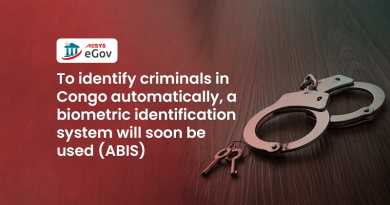Why Secure Law Operations Are Essential for Federal Agencies in the Age of Cyber Threats
In the digital age, federal agencies face increasing cyber threats that endanger sensitive data. Secure law operations are crucial for protecting public safety, maintaining trust, and ensuring data integrity. By adopting modern systems, agencies can prevent breaches, improve decision-making, and enhance field operations without compromising security.
Have you ever wondered how a single data breach could derail an entire federal investigation? In today’s digital world, federal agencies deal with constant cyber threats that put sensitive information at risk. These threats grow more sophisticated each year, making Secure Operations a must for protecting public safety and maintaining trust.
What Makes Cyber Threats a Growing Concern for Federal Agencies?
Federal law enforcement faces attacks from hackers, state-sponsored groups, and insiders. According to a 2023 report from the FBI, cyber incidents targeting government systems rose by 25% over the previous year. These attacks often aim at criminal records, witness statements, and intelligence data. Without strong defenses, agencies risk leaks that could compromise ongoing cases or endanger lives. For example, the 2021 Colonial Pipeline hack demonstrated how disruptions to critical systems can lead to widespread chaos. In law enforcement, similar events could delay arrests or allow criminals to escape justice. Agencies now prioritize systems that block unauthorized access and ensure data stays intact during threats.
How Do Secure Law Operations Protect Sensitive Criminal Records?
Secure law operations involve tools and processes that safeguard information from start to finish. They use encryption to lock data, so only authorized users can view it. This approach stops breaches before they cause harm. In federal settings, where agencies handle vast amounts of personal and case-related data, these measures prove vital. However, many still rely on outdated systems that create vulnerabilities. Transitioning to modern platforms helps, as they offer real-time monitoring and automatic updates to counter new threats. Plus, they support compliance with laws such as the Federal Information Security Modernization Act, which requires agencies to report incidents promptly and address weaknesses.
Why Is Data Integrity Key in High-Risk Incidents?
During emergencies, such as terrorist threats or natural disasters, agencies need reliable data to make fast decisions. Secure law operations ensure that information remains accurate and unchanged. If hackers alter records, it could lead to wrongful accusations or missed leads. Historical events, such as the 2015 Office of Personnel Management breach that exposed millions of records, highlight the long-term damage caused by poor security. Today, agencies focus on building resilience, so operations continue even under attack. This means having backup systems and secure communication channels that keep teams connected.
Can Mobile Access Improve Field Operations Without Compromising Security?
Field agents often work in remote areas and need quick access to records. Secure law operations make this possible through mobile-friendly systems with strong authentication. Agents update case details on the spot, which speeds up investigations. Yet, this mobility introduces risks if not handled properly. Advanced methods, like multi-factor checks, prevent unauthorized entry. For instance, in border patrol scenarios, agents verify identities instantly, reducing checkpoint delays. This setup not only boosts efficiency but also reduces errors from manual entry.
What Role Does Compliance Play in Building Public Trust?
Public scrutiny has increased, with citizens demanding transparency in law enforcement. Secure law operations help by meeting standards that ensure fair treatment and data protection. When agencies follow rules, they reduce lawsuits and build confidence. A 2024 Pew Research survey found that 68% of Americans worry about how the government handles data. By addressing this, agencies show accountability. Moreover, secure systems track changes to records, creating an audit trail that proves integrity during reviews.
How Have Real Agencies Strengthened Security Through Modern Approaches?
Take the Salt Lake County Sheriff’s Office in Utah. They integrated secure systems for inmate management, improving data consistency from booking to release. This reduced errors and ensured compliance across stages. Similarly, U.S. correctional facilities have adopted tools for identity control, preventing fraud and enhancing safety. These examples show how Law Enforcement systems solve real issues, like fragmented workflows and delayed data sharing between departments.
Addressing Pain Points in Federal Law Enforcement
Many agencies struggle with high costs due to outdated tech and integration issues. Secure law operations tackle these by streamlining processes and enabling smooth data flow. For police departments and investigative units, this means faster case tracking and fewer compliance issues. Correctional administrations benefit from centralized tracking, while government ministries gain better oversight. Public safety agencies see improved response times, as information moves quickly without silos.
With over 20 years of experience, M2SYS eLaw Enforcement Solution builds and delivers tailored eLaw Enforcement solutions that address these challenges. The platform provides secure data-sharing frameworks, helping agencies protect records and maintain continuity. It integrates existing systems, cutting deployment delays and costs. As a result, federal teams handle cyber threats more effectively, supporting their missions without added risks.
The Impact of Secure Law Operations on Decision-Making
In the end, secure law operations empower agencies to act with confidence. They reduce breach risks and support quick, informed choices. As cyber threats evolve, adopting these practices becomes essential for federal success. Agencies that invest now will stay ahead, ensuring safety and trust in a complex world.
Frequently Asked Questions
What are Secure Law Operations?
Secure law operations refer to the processes and tools that federal agencies use to protect sensitive criminal records from cyber threats. This involves encryption, real-time monitoring, and automatic updates to safeguard data. Agencies use these measures to comply with laws such as the Federal Information Security Modernization Act, ensuring incidents are reported and weaknesses addressed promptly. Learn more about Secure Operations.
How does the M2SYS eLaw Enforcement Solution enhance data sharing?
The M2SYS eLaw Enforcement Solution is designed to modernize police operations by facilitating secure interagency data sharing. It integrates biometric identification and case history into a unified system, enabling agencies to access and act on critical data in real-time. It is an essential tool for overcoming information silos. Explore Solution to see how it supports operational efficiency.
Why is compliance important in building public trust?
Compliance with legal and regulatory standards ensures that law enforcement agencies treat data responsibly and transparently. This meets public expectations and reduces the risk of lawsuits, ultimately building trust with the community. Secure law operations help agencies meet these standards, as discussed in our article on Biometric Database.
How does secure mobile access benefit field operations?
Secure mobile access allows field agents to update and retrieve case details instantly, improving the speed and accuracy of investigations. Multi-factor authentication ensures that this access does not compromise security, providing real-time data without unnecessary delays. For more insights, read about how agencies manage these activities in Manage Activities.










